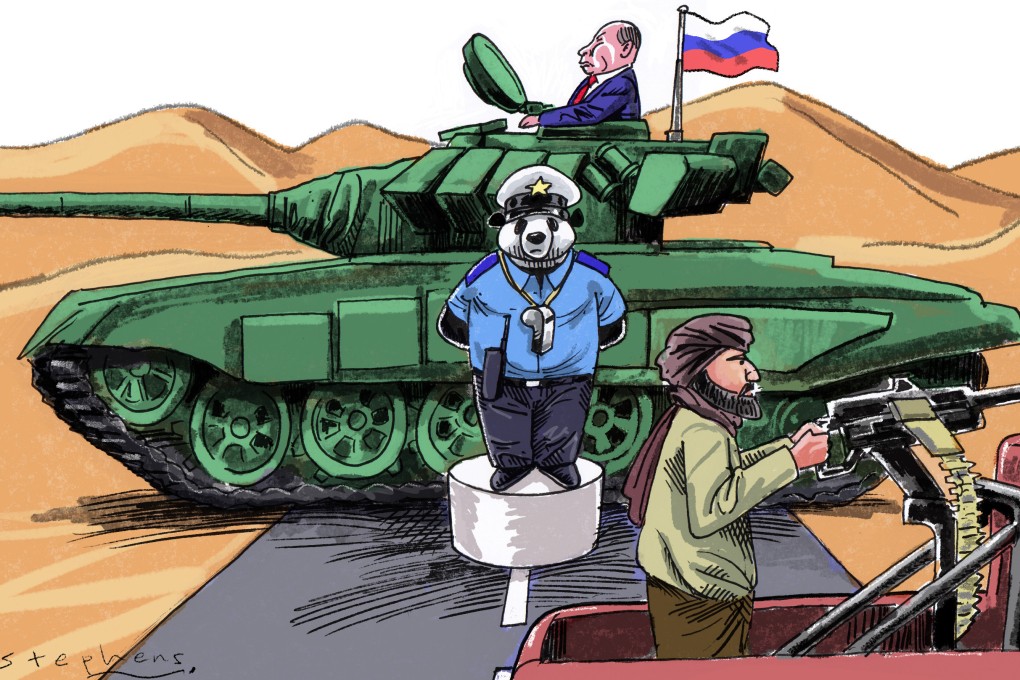Advertisement
Opinion | China still reluctant to use its power and influence in Eurasia, despite crises in Ukraine and Afghanistan
- Russia’s invasion of Ukraine and Afghanistan’s instability are blockages to Beijing’s vision for Eurasia, but it has done little to fix either
- In the decade since the belt and road was first discussed, China has become a major player in the region, yet it appears unwilling to step in to help resolve conflicts
Reading Time:3 minutes
Why you can trust SCMP
5

This year marks the first decade of the Belt and Road Initiative. While the vision might have evolved from the speeches President Xi Jinping gave in Astana and Jakarta in 2013, it remains a key concept that has been enshrined in Communist Party doctrine. The territory it started marching across has changed dramatically, but what has not yet changed is China’s willingness to step into a leadership role within this space.
Most glaringly, this is visible in the two major conflicts that now dominate the Eurasian heartland where the initiative was launched. Russia’s invasion of Ukraine last year has upended the regional and global order, while the Taliban takeover of Afghanistan in mid-2021 has left an unstable state at the heart of the Eurasian land mass.
Together, these countries and their troubles present a major strategic blockage for China’s wider vision. However, there has been little evidence of Beijing seeking to fix either.
In fact, China seems set on simply letting both clashes play themselves out while offering platitudes in public which serve to suggest Beijing might seek to do something. In both contexts, China is a logical option to play a role in trying to resolve matters, and those on the ground are keenly aware of this.
Before the Russian invasion, China was Ukraine’s most important trading partner and a growing investor. The Belt and Road Initiative swept across Eurasia and saw Ukraine as a key link between Europe and Asia. With infrastructure and raw materials, technologically savvy and an underdeveloped economy on the European Union’s borders – it was a highly attractive prospect for Chinese investors.
Russia’s war has stymied these dreams while also posing a major threat to planned investments by Chinese firms in Belarus. Chinese companies and banks had intended the country to become a way station for products coming from China into Europe’s wealthy markets. But projects now sit idle while investors try to figure out how to adapt to the new reality.
Advertisement
